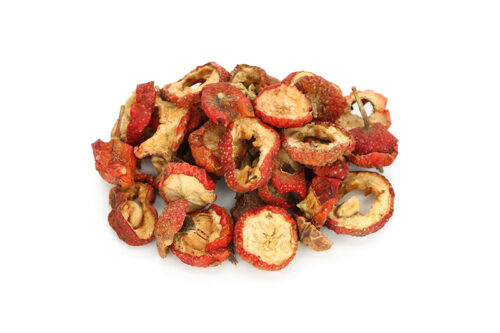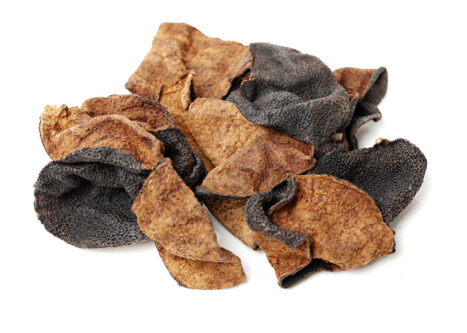The other day I saw a woman with complaints of burping and belching all day long that was worse when eating, especially after drinking water. While these symptoms can indicate more than one possible cause, I knew in her case it was what Traditional Chinese Medicine (TCM) calls Food Stagnation. This is because right now in early March, we are in one of the two most challenging times of year for digestion.
Metabolism is ruled by the Earth element organ systems of the Spleen and Stomach in TCM. Its energy is strongest from July to mid-September while it is weakest at the opposite time of year, from Jan to mid-March. At these times it is common for people to complain of digestive difficulties. I usually always see people with Food Stagnation symptoms or digestive problems at these times, but especially in September or March.
Food Stagnation Symptoms
The symptoms of Food Stagnation may be acute or chronic. The acute stage is similar to how you feel after eating a big celebratory meal when you have over-eaten for days at a time. Eventually, this can turn to a chronic condition with more symptoms as follows.
Acute:
- frequent belching or burping
- unrelieved hiccupping
- sour regurgitation or reflux
- nausea or vomiting
- foul gas
- loose stools or diarrhea with foul smelling stools
- no appetite
- fullness and distention of the epigastrium that’s relieved by vomiting
- insomnia with a full feeling in the stomach region
- epigastric spasms
Chronic:
- foul breath
- sour regurgitation
- belching
- certain types of insomnia
- abdominal fullness and bloating
- poor distribution and/or assimilation of nutrients
- tightness of the muscle under the epigastrium and/or ribs or of upper abdominal muscles
- tightness of lower intestines
- plus I’ve also felt and seen a thickening of the fat layer over the upper abdomen
Pulse: full, slippery
Tongue: thick, possibly swollen; greasy coating, which could be white or yellow
There’s also an element of Dampness with Food Stagnation, as seen in difficulty with or reactions to drinking water. When there’s Dampness in the digestive organs, one has no desire to drink or to only drink in small sips. There may also be possible phlegm in the throat, thicker mucus with a cough, edema, drooling at night, and a worsening of allergies, sinus congestion, and/or sleep apnea.
Herbs for Food Stagnation
Thankfully, there are many wonderful and simple herbs that relieve Food Stagnation and dispel dampness/phlegm. The following are specific for this condition:
- Hawthorn berries (Crataegus spp.; shan za) – used specifically for overeating of meat and greasy foods
- Radish seeds (Semen Raphanus sativus; lai fu zi)
- Barley sprouts (Hordeum vulgaris; mai ya)
- Rice sprouts (Oryzae sativa; gu ya)
- Asafoetida (Ferula asafetida)
- Massa Fermentata (shen qu) – this is a fermented mixture of wheat flour, bran and various herbs including wormwood, apricot seed and cocklebur (Xanthium)
As well, bitters can be most helpful in aiding digestion of stagnant food. But one of the best herbs is hawthorn. Generally, Food Stagnation-relieving herbs are combined with digestion-aiding herbs, or carminatives.

Dried hawthorn fruit
Hawthorn Berry (Crataegus cuneata, C. pinnatifida, C. oxycantha)
Western hawthorn berry (Crataegus oxyacantha), the herb much beloved for treating heart conditions, may also be used as a digestive aid. The Chinese have long considered Crataegus pinnatifida (shan zha), the larger fruited variety, one of the best herbs to transform blockages in the stomach and intestines and to clear accumulation of undigested food, especially that of meat and fat.
Hawthorn alleviates symptoms of abdominal distention, pain, and watery diarrhea or dysentery (especially for the latter two when the herb is charred), poor appetite, hernia, and abdominal masses. It has been so widely used for this that hawthorn wafers are sold in Chinese pharmacies and markets as a tasty after-meal digestive for all ages. It is also good for childhood nutritional impairment.
Dampness/Phlegm
One of the best and most accessible herbs to treat dampness and phlegm is citrus peel, particularly aged tangerine peel, although orange or lemon peels may also be used even though they are not as strong.

Dried tangerine peel
Tangerine Aged Peel Citrus reticulata Chen pi (Chinese)
In Chinese medicine, the ripe tangerine peel is a major herb used in many formulas. Specifically, it aids digestion treating hiccough, belching, reflux, a stifling sensation in the chest, indigestion, gas, watery diarrhea or loose stools, nausea, vomiting, abdominal swelling or fullness, bloating, lack of appetite, and cough with profuse clear to white phlegm. Further, citrus peel is often included in tonifying formulas to prevent any herb’s cloying nature from causing stagnation.
Contraindications: This herb is very drying. Do not use for those spitting up blood, or with dry coughs, spasmodic abdominal pain, heat, or dryness. Long-term use can injure the body’s energy.
Citrus and Crataegus Formula (Bao He Wan; Preserve Harmony Pill)
Perfect for our purposes, this traditional formula that combines both hawthorn and citrus that specially treats food stagnation. This formula especially treats food stagnation in the upper abdomen with stomach discomfort, distention and fullness, abdominal bloating, foul belching, sour regurgitation, and possible nausea or diarrhea.
- 9-15 g Hawthorn Berries (Shan Zha, Crataegus pinnatifida)
- 9-12 g Medicated Leaven (Shen Qu, Massa Fermentata Medicinalis)
- 6-9 g Radish Seed (Lai Fu Zi, Raphani sativi)
- 6-9 g Citrus Peel (Chen Pi, Citri reticulatae)
- 9-12 g Pinellia (Ban Xia, Pinelliae ternatae)
- 9-12 g Poria (Fu Ling, Poria cocos)
- 3-6 g Forsythia (Lian Qiao, Forsythia suspensa)
Properties and Actions:
- a) Digestive
- b) Reduces food stagnation
- c) Harmonizes the Stomach
Indications: This formula is used for food poisoning and overindulgence in rich foods, alcohol, meat or greasy foods. There may be symptoms of abdominal distention with fullness of the stomach, epigastrium and chest, occasional pain, belching, acid regurgitation, nausea, vomiting, aversion to food, diarrhea or constipation.
Tongue: yellow, greasy coated tongue
Pulse: slippery pulse
Variations: For more severe abdominal distention, add green citrus peel (zhi shi) and magnolia bark (hou po). For constipation add Rhubarb (Da Huang) and Betel Nut (Bing Lang).
